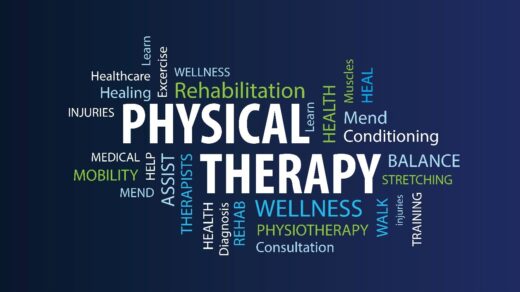
While the term “speech” is prominent in its name, speech therapy’s impact extends well beyond mere conversation. It addresses a remarkable spectrum of communication obstacles, ranging from intricate social dynamics and pragmatic intricacies to non-verbal cues, written expressions, linguistic aptitude, bodily gestures, cognitive prowess, comprehension, and the art of drawing inferences. Essentially, if it plays a role in communication, speech therapy embraces and enhances it.
John R. Callen of MedRehab Alliance explains that communication problems (i.e., a breakdown in receiving or conveying a message) come from an array of conditions and disorders, such as autism spectrum disorder, neurological concerns, hearing loss, learning difficulties, mental health problems, physical disabilities, and palliative care needs. But regardless of the cause, speech therapists tackle all aspects of communication to improve quality of life, confidence, self-esteem, social lives, and more.
Improving Social Interaction
Social interaction is the behavior of those who are participating in joint activity. In the communication sphere, it refers to various communicative behaviors, including:
- code switching (i.e., hopping between two languages)
- speech style depending on the context
- cultural influences on interaction
- gender differences if applicable
- impact of one language on another for bilingual or multilingual individuals
- conflict resolution ability
- ability to be flexible in power relationships
- social reasoning ability
- following linguistic politeness
- peer-related social competence
For a successful communication process, people must understand and have the ability to carry out generally expected social rules. However, those with communication difficulties may struggle with one or more of the above. Thus, speech therapists aim to reduce associated issues through explanations of the communication process, demonstrations of appropriate behaviors, and vocabulary increases.

Non-Verbal Communication for Enhanced Pragmatics
Pragmatics is the term used to identify the social use of language. In other words, it’s how people use language in a conversation to express themselves. Everything from verbal to non-verbal communication impacts this area.
Speech therapists help people overcome difficulties in a myriad of non-verbal categories, including:
- body language
- deictic gestures (i.e., gestures that indicate)
- conventional gestures (i.e., nodding or waving)
- emphatic gestures (i.e., meaningless movements that go hand-in-hand with speech)
- symbolic gestures (i.e., representations of objects)
- eye contact
- facial expressions
- the space between conversational partners
Speech therapists often provide therapy to work on each non-verbal difficulty individually, often including demonstrations of appropriate communication in various scenarios.
Language Skills for Successful Communication
Language skills refer to the ability to understand, read, speak, and write. Unbeknownst to many, it contains many aspects, including:
- syntax (i.e., a set of rules that regulate sentence structure)
- receptive language (i.e., someone’s ability to understand spoken and written words)
- semantics (i.e., understanding words’ meanings and classifying like terms together)
- expressive language (i.e., someone’s ability to express themselves using spoken and written words)
- morphology (i.e., the different word forms)
- phonological skills (i.e., someone’s ability to recognize, produce, and differentiate different sounds required for words)
Difficulties in these areas can impact people’s lives in different ways — socially, professionally, personally, and more. Like non-verbal communication problems, speech therapists tackle each one individually, providing exercises that work on improving each difficulty one by one.
From greater self-esteem to improved literacy to social belonging to increased independence to decreased anxiety, speech therapy moves far beyond mere speech, allowing individuals to unlock a better quality of life.



